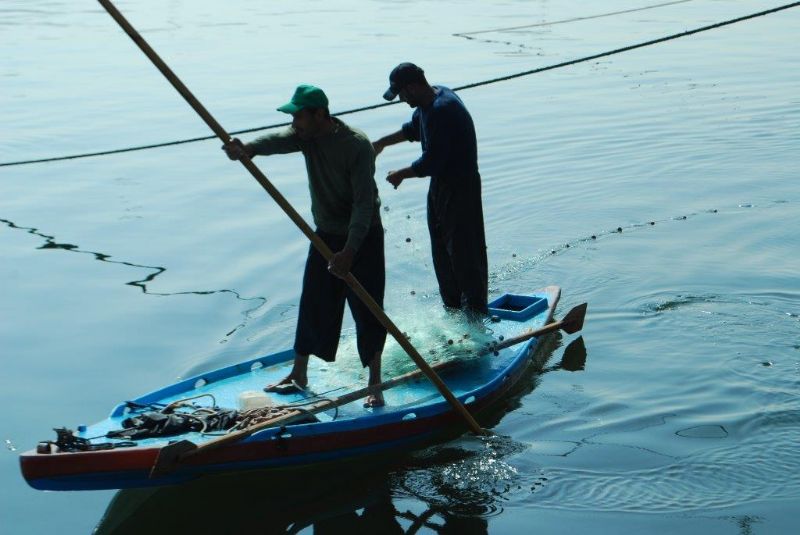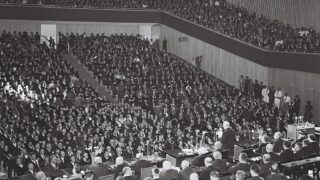We have sailed off Larnaca port on many occasions. The first was in 2008, when the journey reached its destination and the destination justified the journey; a time when Hellenes (Greeks) would express their affinity with the Arab world and their solidarity towards the Palestinian people, tormented hard by the violence of occupation.
In Cyprus, where memories of the invasion and the occupation of a large part of its territory were still fresh, Godspeed wishes to Greek and foreigner travellers aboard the ships sailing to Gaza were heart-felt.
Two years later, however, the geopolitics of Hellenism would radically change and Greece and Cyprus foreign policy would shift to the logic of the so-called tactical, rather than the strategic interest. The political position “the enemy of my enemy is my friend” became a univocal doctrine, our regional international relations succumbed to that doctrine and previous long-lasting friendships were ostracised to oblivion; even hints to such friendships became words without a meaning, uttered only when the diplomatic protocol so dictates.
It was a time when Turkey, under way of political stabilisation and economic emergence, would begin a big enterprise of beguilement and leverage to the Arab-Muslim world, with an overt hegemonic agenda. A time when the rupture between Israel and Turkey relations broke out (2009), having neither Greece nor Cyprus as their political stake, but the geopolitical balance in the Arab-Muslim world and the devastation that followed. Notable victims would be Syria, Libya among several others.
Should we suppose that Hellenism withdrew then from the regional international stage because of the economic crisis? Or would it be that we Greeks were lured by the bait of receiving diplomatic, economic, even military support by an old “friend of our enemy” –just remember strategic alliance Israel-Turkey up until 2009- who became “enemy of our enemy” at that time and suddenly became our friend?
Should anyone think that the political leaders of Hellenes believed the big promises of our new ally for effective diplomatic support, for mediation at the international credit organisations in its area of influence, for joint exploitation of (actual or hypothetical) undersea treasures?
This article is not intended to provide a detailed reply to the questions above, neither to assess the politics of Greek and Cypriot governments of the past in terms of a cost/benefit analysis. This article focuses almost exclusively on the cost incurred by the gradual loss of the political prestige of Hellenism in the countries of the Middle East, now inflamed by war, and by the rupture in the historic relationships of friendship with its tormented peoples. It further focuses on the security of our civilians threatened by the expansion of non-rational violence.
To that effect, focus is placed on the necessity to take appropriate, careful initiatives that will change the current image of Hellenes as marginalised and remitted from all those events taking place in our wider region that are catastrophic to the Arab countries and a threat to our own. A humanitarian initiative stabilising the region in terms of geopolitics, eminently symbolic and above all shouting out a strong, sharp message to our ages-long Arab-Muslim neighbours.
Thus, this article suggests a mature initiative that will bridge the Cyprus land with the Palestinian land by its “work and heart”, linking two ports; one could be a “port zone” under international control, located at the Greek-Cypriotic port of Larnaca, the nearest in European Union territory, and the other the small fishing port of Gaza, that welcomed the first two fishing boats of our first mission…
Such an initiative could today find “sympathetic ears” on the international arena. It further has the support of major Palestinian parties and movements that are willing to accept this as a transitional solution, without however compromising rights attached to the solution of the Palestinian question, Insha'Allah.
As regards Hellenism, deploying such an initiative is absolutely compatible with exerting bare independent foreign policy, clearly does not intend to disrupt interstate or ally relations and is in no case a threat to the well-meant (under international law and international conventions) national security of a third state. Besides, international control as accepted by the Palestinian side would ensure this perfectly.
Concluding, a relevant diplomatic initiative could become a spearhead in rebooting a relationship of multiple levels, multiple notions and many benefits for Hellenism in the Middle East, building its strong foundations on the soil fertilised by the long journey of our common history.
P.S.: We are planning a new mission to break the blockade of Gaza by sea end of spring. May good news forestall our plans and make our journey unneeded.




